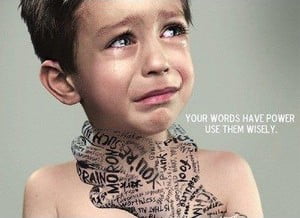“A healing tongue is a tree of life, but perverseness in it crushes the spirit.” Prov. 15:4 (NASB)
While a student at Denver Seminary (a very long time ago), then president Dr. Vernon Grounds, made an indelible impression upon this young, naïve seminarian. Dr. Grounds went out of his way to greet each student he encountered with a genuine word of encouragement and value. That was his way, and in his company, not only did I feel like the most important person on campus, I also knew that he believed God had great plans for my life.
There was, on the other hand, a professor who didn’t particularly care for me, and who made it very clear that he considered me nothing more than an “average” student who, in his opinion, “would never amount to anything.” Which of the two do you think stirred life and hope into my spirit, and which crushed my spirit? I wish I could say that Dr. Grounds’ life-giving words had more impact on me than the latter, but for a long time I felt my spirit crushed — something very hard to repair.
The spirit of children and youth are especially easily damaged and crushed by our words, if we are careless with them.
I heard the story a long time ago about a man who adored his grandfather and would do anything to be able to spend a day with him fishing. He got that wish one day, and was so ecstatic that he couldn’t sleep the night before.
That day was the best ever for this young boy. He was doing what he most wanted to do—fish with his grandfather. When the day was done, he couldn’t help telling everyone what an incredible day it was, even though they spent most of their time untangling his fishing line.
For a long time, he enjoyed those cherished memories of that fishing experience with his grandfather. He was a teenage when his grandfather died. One day while going through some of his grandfather’s belongings, he discovered his personal journal. He couldn’t wait to read what his grandfather had to say.
He found his entry for the date they both went fishing together. The note for that day in his grandfather’s handwriting simply said, “Gone fishing today with my grandson. Totally wasted day!”
Words have power. They can so easily crush a child’s spirit, even if unintentional. Learning to speak words of life well requires intentionality and diligence. It is a life-long task, which the wise men of old took quite seriously. They understood too well the power of the tongue to destroy or to heal – to bless or to curse.
Grandparents, we dare not forget the power of our words, whether for healing or crushing. May God give us the wisdom to carefully choose to speak life-giving words to our children and grandchildren. I know I don’t want crushed spirits in my legacy. Do you?
GRANDPAUSE: “The fitness of our speech and its freshness are two factors that determine what gifts of life and love we bring to others by our words.” – David A. Hubbard







0 Comments